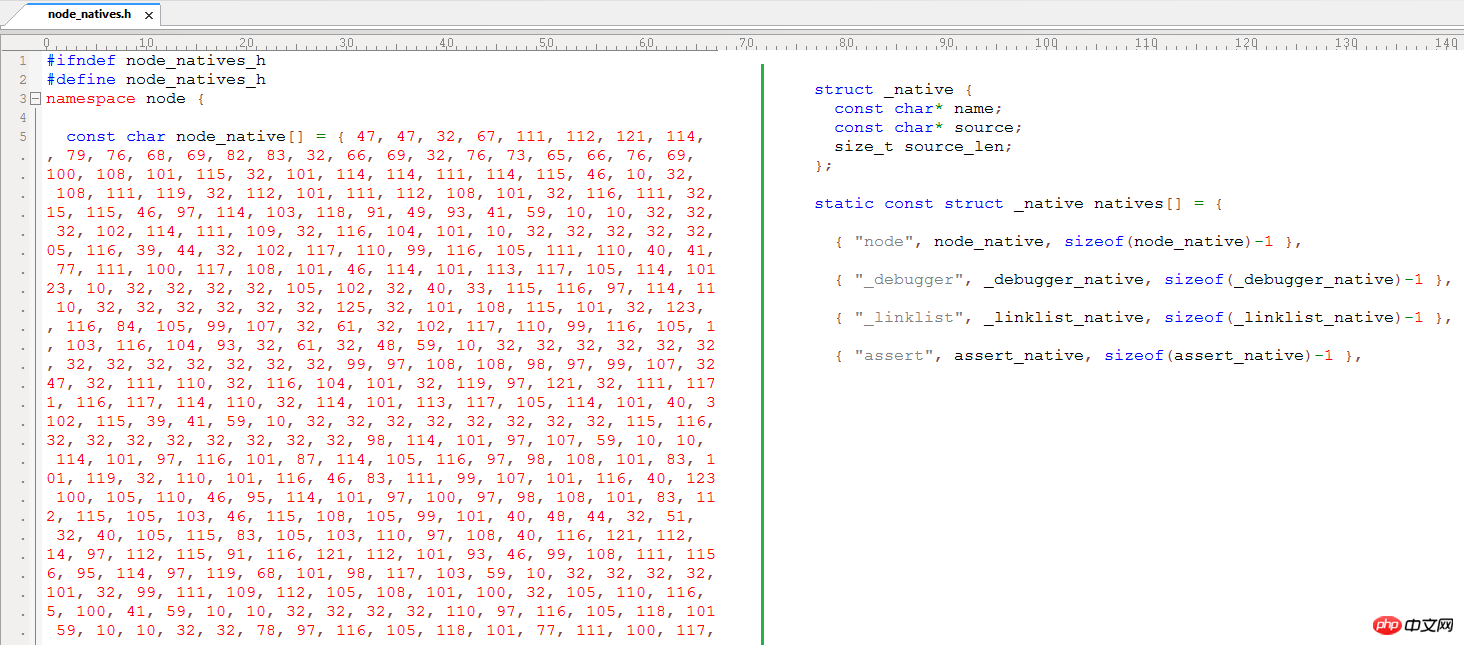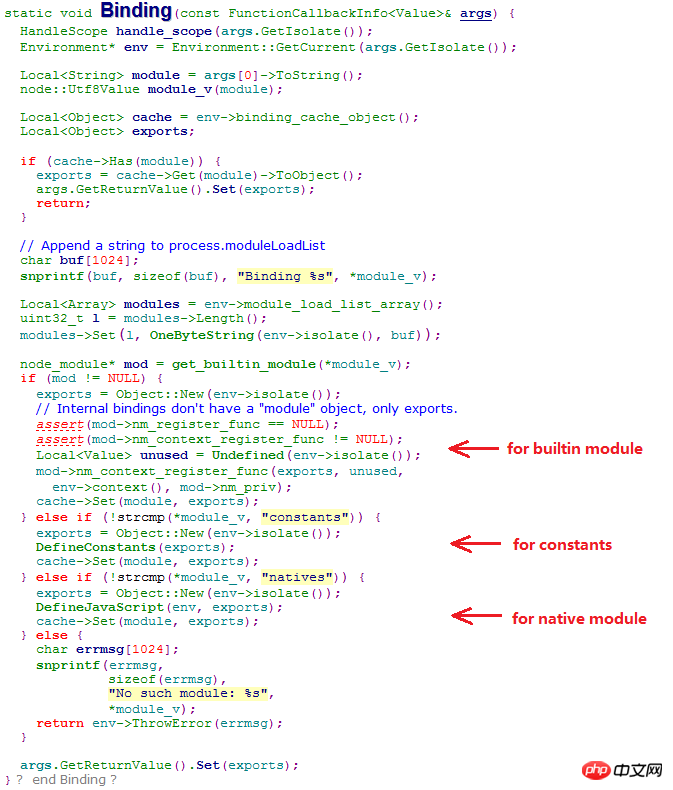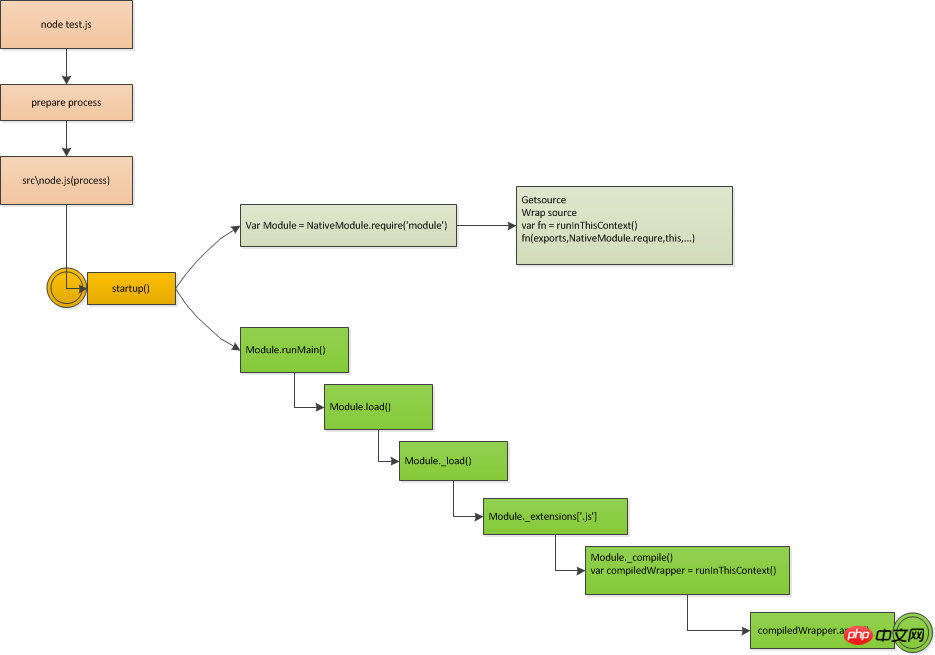
When using Nodejs, it is inevitable to refer to third-party modules. Some of them are built-in with Nodejs (for example: http, net...), and some are published on npm (for example: mssql, elasticsearch...)
This chapter focuses on 3 issues:
The loading process of Nodejs module.
The process of application startup.
How the application loads dependent modules.
1. Module loading process
Nodejs modules can be roughly divided into 4 types:
a) builtin module Nodejs module provided in C++.
b) constant module A module that defines constants in Nodejs.
c) native module Module provided in javascript form in Nodejs.
d) Third-party module Modules provided by third parties.
Let’s first look at the generation process of builtin module and native module.

The generation of native JS module is relatively complicated. After compilation, a node_natives.h will be generated in the /out/release/obj/gen directory.
This file is generated by js2c.py. It will convert all js files in the lib directory in the Nodejs source code into ASCII codes and store them in the corresponding array.

builtin C++ module generation process is relatively simple. Each builtin C++ module entry will be expanded into a func through the macro NODE_MODULE_CONTEXT_AWARE_BUILTIN. For example, for the tcp_wrap module, it will be expanded into static void register_tcp_wrap() attribute(constructor) function.
Friends who are familiar with GCC know that the function modified by attribute (constructor) will be executed before the main() function of Nodejs. In other words, the builtin C++ module will be loaded before the main() function. modlist_builtin list, and modlist_builtin is a pointer of type struct node_module, get_builtin_module() will traverse to find the module we need.
In fact, whether it is a naive JS module or a builtin C++ module, it will eventually be compiled into an executable file. The extraction methods of the two are quite different. The js module uses process.binding('natives'), while the C++ module uses get_builtin_module() directly.
A binding() function is provided in node.cc. When we use require() to reference another module, the binding() function will be introduced. Let's analyze this function:

It can be seen visually that the function mainly serves three modules: builtin, constants and native.
builtin has the highest priority and will be searched in modlist_builtin. The process is very simple. Just traverse the entire list and search for modules with the same name. After being found, the module's registration function will be executed first, and then the data exports will be returned.
The constants module has the second priority, and the constant definitions in Nodejs are exported through constants.
native has the lowest priority.
2. Application startup process

The above picture is a flow chart, which describes the startup of test.js as a parameter Begin and eventually be executed. The whole process can be divided into 4 steps:
1. Executable file node: node entry, which mainly plays the role of environment preparation during the startup process
2.src/node.js: startup script
3.Native Module: Prepare for the execution of module.js
4.module.js: native module, used to load, compile, and execute applications
How the application loads dependent modules
As mentioned earlier, NativeModule.require() is only responsible for helping to reference natives modules, which is enough for lib/module.js.
But it is obvious that general applications need to reference not only the matatives module, but also third-party modules. Let us take a look at the Module.prototype._require() function in module.js.

Related recommendations:
In-depth understanding of NodeJS
nodeJS implements WeChat function sharing
The above is the detailed content of Detailed explanation of Nodejs module loading and operation principle. For more information, please follow other related articles on the PHP Chinese website!




